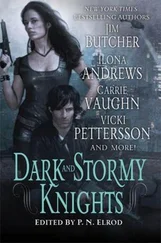“I don’t know how to thank you for all this stuff, Ross, shingles and glass and tires.” She turned to her closet and brought out the racing sheet and the saddlecloth folded together. “How about these colors? Dark blue and kind of brick red.”
“That will do.” He took the packet from her. “It looks very good.”
“I thought it would show off his color.”
“It will.” He touched her shoulder. “Walk me to the truck,” he said. “I have a train to catch.”
They walked out to his truck. There was a long silence and both of them rested in the cool night, in the new-minted springtime of Central Texas.
“When will you be back?” she said.
“Two weeks, three weeks. Then when I’ve made my contracts, I’m going to be involved in buying up the June shear crop, getting my shearing crews from one place to another.” He laid the folded racing sheet and saddlecloth on the seat.
She put her hand on his arm. Sometimes he seemed like a large older brother or uncle and other times, like now, in the dry clean darkness there was something so powerfully private and sexual between them. He might touch her body, he would lay himself alongside her. He would hear whatever she had to say. He would bend down and listen with that grave, considering expression on his face and so she said, “Ross, we’re all going in different directions.” She took hold of his white shirtsleeve.
“Who?”
“Us. Us here.”
He thought about it for a while. He reached out and put his hand on her shoulder and felt the articulation of bones beneath his hand and the light material of her dress. He looked down at her square face and her long gray eyes. He tightened his hand on her shoulder and then he turned away from his thoughts. He said, “Yes. You’re wondering what will become of this place.” He cleared his throat. “Mayme’s very caught up with that Air Force fellow. And your mother is spending a lot of her time in town.”
Jeanine said, “Yes,” and turned to look at the rising moon, which was a dark yellow sickle lifting over the top of Shinnery Mountain. The old barn had held out against gale winds despite its missing boards. The house seemed white and lofty in the dark, pinioned between the two chimneys. She wondered where they had got the stones. If the house were abandoned once again that would be the end of it. She tried to see forward into the time to come. It seemed they all kept turning into other people, that there was no one germ of self held in reserve against all that shifted and changed and blew at them from some remote source. They had wanted so much to come here, this place where she had walked down in the soft darkness with her father and grandfather to listen to the breathing of the work team. And in not too many years they would all go away.
He turned his back to the door of the truck and leaned against it. He put his arm around her shoulders and she came to him and lay her cheek on his shirt.
“Nobody has to get married, Jeanine,” he said. “You can live here the rest of your life if you wanted.”
“I can’t do it by myself.”
“No.” He thought about it for a moment and then said, “No, not alone.” The rat terrier came softly padding across the lawn. He came near them and ducked his head several times and then sat down and tucked his tail around his front legs and blinked. “Be good to that dog, Jeanine. He’s begging you.”
“I don’t like him.”
“That’s not the point. He runs off the things that get chickens. He kills rats.”
Jeanine shifted away from his arms and bent down and ran her hand over the little bony skull, and the terrier’s tail whipped back and forth. Ross watched her. The dog sat and stared at them with his ears standing up.
“I guess someday we might have to rent the place out,” she said.
“Renters move,” he said. “Three renters is as bad as a fire. You never know what will happen, sweetheart.”
“Then what?”
“Then you just keep trying.” He bent down and kissed her, lightly. “There’s no alternative.” He opened the car door. “I’ve got three days sitting up in coach looking at me.”
Jeanine held the door handle. “Do you have something to eat?”
“Yes.” He slid into the seat and she shut the door. “A lot.” There was a cardboard box beside him on the seat. Probably full of hardboiled eggs and biscuits and other things that would crumble all over his coach seat. He was going to meet the Yankee capitalists of the Rhode Island mills with his worn suit and a box full of homemade food and a Stetson hat. “Good-bye, Jeanine.”
When his taillights had disappeared she walked down to the barn in the dark with Biggety at her heels. She circled the barn and checked the hens shut up in the stall behind chicken wire. They would do this every night. It was to show Biggety that she was on his side and between them they would guard against predators and change and mischance. Then she sat for a long time on the veranda, listening to the familiar dark.
Cap and the men lived like trolls in the engine shed. They set up a table made of a cable spool and they put a coal-oil lamp in the middle and sat around it on empty wooden liquor boxes and dynamite boxes. They cooked on their tiny cast-iron stove and slept on the floor. One late, hot evening George Lacey drove in and walked in the door of the engine shed and said good evening and sat down with them.
“I’m snooping,” he said. He reached for a deck of cards. “And looking for something to do of an evening.” He shuffled the cards. “I’ll deal you a hand.”
“I don’t play,” said the captain. He lay back on his bedroll, on the floor beside the stove, with a candle stuck in a sardine can. “I quit.”
“Quit what?”
“Shooting dice and playing poker. I don’t wager.” The wind sang in disjointed hoots at the edge of the tin roof and Captain Crowninshield squinted at the Magnolia field connections foreman in the dim light.
“Well what do you do for entertainment, Mr. Crowninshield?”
“I’m reading a book.”
“What’s it about?” Lacey spun the cards out from man to man and laid a handful of pennies on the table.
“It’s a detective in Los Angeles that’s mixed up with fast women and gangsters.”
“Leave him read,” said Andy. “You just have to leave him read.”
The driller figured Lacey was going to ask him when they were going to give it up. All the core samples were dry as fossils and no sign of sand. In fact Andy had pulled up a sample with a strange birdlike skeleton in it, like a print, something beached in a waterless limestone sea. Both Andy and Otto laid down their cards and yawned until their jaws cracked.
“You play dominoes?” said Lacey.
“Hell yes.” Crowninshield emptied a box of black dominoes out onto the cable spool.
“You got the old well log?” said Lacey. “From when they drilled here before?”
Crowninshield tried to think what business George Lacey had in this wildcat well, and thought for a moment. He should just ask him. When they had reached three thousand feet, Captain Crowninshield asked the shabby producer if he still had the old well log from fifteen years ago, and the producer said he probably did, that he might be able to find it somewhere in his papers. Tells you what kind of outfit Beatty-Orviel was. And he did find it, the long thin strip of paper with mysterious seismograph markings on it, and in some parts the markings were thick with spikes and in others they were so tight as to form a solid bar. Crowninshield had stuffed it into a cardboard box somewhere, he wasn’t sure where. But he left his dominoes and went searching through his piles of papers in the Carnation box. He found it. He flipped through the log by the light of the kerosene lamp. Ran his finger down the jittering black lines indicating strata.
Читать дальше












